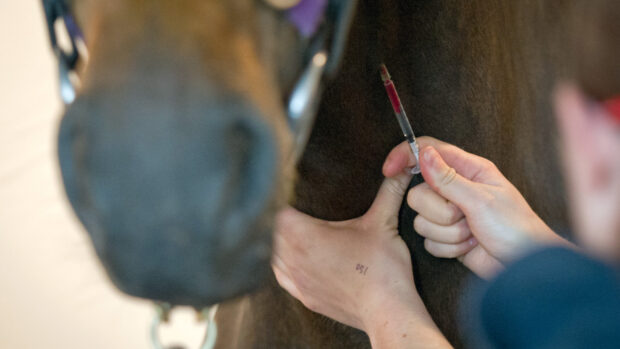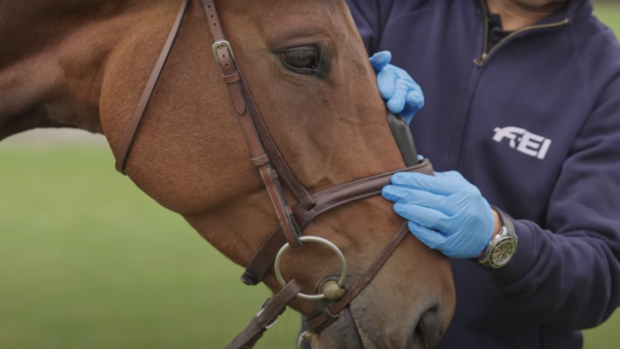Debate surrounding blood rules in horse sport looks set to raise its head again in coming weeks, as the FEI prepares to release the second draft of proposed rule changes for 2022.
The wrap-up report from the FEI’s latest board meeting (28–29 September) indicated that discussion surrounding blood rules is back on the table.
Blood rules are a contentious topic, and vary between disciplines. The most recent high-profile call for “further thought” came from Ireland’s Billy Twomey, eliminated under the rule following his winning a grand prix in Florida, who took the decision to the FEI tribunal (news, 30 July 2020).
Notes from the September FEI board meeting state that “discussions centred” on blood, and on protective headgear in dressage.
“The board tasked the technical chairs to discuss and review the blood rules within the discipline-specific rules and veterinary regulations in consultation with the legal department,” state the notes.
The final draft of rules covering international horse sport in 2022 will be released on 18 October; they will be debated and voted on at the FEI general assembly in November.
Rules surrounding the ban on top hats in dressage were also in the spotlight again.
A further push from certain corners of the sport to overturn the 2019 ban was quashed in the first draft of FEI rule changes (news, 5 August), and again at the September board meeting.
“While there is still some opposition in the dressage community to the requirement to wear protective headgear, the board agreed that protecting the welfare of athletes was paramount and it did not support exceptions in the application of this rule,” stated the notes.
The FEI board was advised that stringent biosecurity protocols should continue to prevent future mass EHV-1 outbreaks.
FEI veterinary director Göran Åkerström told the meeting there are currently no outbreaks related to FEI events. He added that the European bylaws are being evaluated to determine which should be included in the veterinary regulations and applied worldwide.
“As the scientific evidence of the EHV-1 vaccines is being evaluated, a proposal for mass vaccination has not been included in the proposed changes to the FEI veterinary regulations,” added the report.
“While there has been a significant increase in the number of athletes vaccinating their horses against EHV-1, as well as a rise in EHV vaccine sales, a worldwide vaccination campaign would require greater involvement from [national federations]. [With] the current rate of vaccinations this can only be achieved by 2025, given the large numbers of vaccines which still need to be distributed.”
Sanctions for non-compliance with biosecurity measures for events in mainland Europe were introduced on 1 October, with a transition month, so will be implemented from 1 November.
Other key points from the meeting included news that a proposal to add a widely used herb to the list of prohibited substances has been scrapped, following feedback from national federations (news, 15 July).
Chasteberry (Vitex Agnus Castus), whose uses include supporting hormone levels in horses, will continue to be permitted in horses competing under FEI rules in 2022.
You might also be interested in:

Subscribe to Horse & Hound magazine today – and enjoy unlimited website access all year round
Horse & Hound magazine, out every Thursday, is packed with all the latest news and reports, as well as interviews, specials, nostalgia, vet and training advice. Find how you can enjoy the magazine delivered to your door every week, plus options to upgrade your subscription to access our online service that brings you breaking news and reports as well as other benefits.





